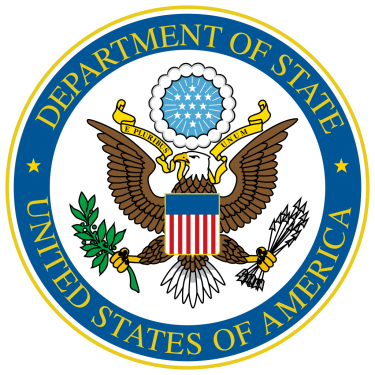The Impact of Technology on the Performance of Letters Rogatory Processes
The Impact of Technology on the Performance of Letters Rogatory Processes
Blog Article
Letters Rogatory Explained: Facilitating Legal Collaboration In Between Countries

Definition of Letters Rogatory
Letters rogatory are official requests made by a court in one jurisdiction to a court in an additional jurisdiction, seeking aid in obtaining evidence or statement for a legal proceeding. This step-by-step device is necessary in the context of international legislation, where lawful systems might differ, and cross-border teamwork is essential. Letters rogatory help with the event of details that may be vital for adjudicating situations, specifically in instances involving complicated multinational issues.
Normally, these requests develop in civil, criminal, or management issues where a party requires evidence that is located outside the territory of the asking for court. The letters offer as a way to make certain that the concepts of due process are upheld, allowing courts to gain access to proof that may or else continue to be hard to reach as a result of lawful or geographical obstacles.
The usage of letters rogatory is controlled by global treaties, reciprocal arrangements, or residential regulations, which mark the treatments and commitments of the courts entailed. It is necessary to note that the execution of such demands is not assured; they depend on the regulations and techniques of the jurisdiction obtaining the letter. Therefore, letters rogatory are a crucial device for cultivating lawful participation and making certain justice throughout borders.
The Process of Issuing Letters Rogatory
Issuing letters rogatory involves a structured procedure that makes sure compliance with both domestic and international legal standards. Initially, the asking for event, usually a court or legal authority, drafts an official request detailing the nature of the assistance looked for, the proof or information required, and the legal basis for the request. This document needs to be accurate to facilitate understanding by the international jurisdiction.

The next step involves transmitting the letters rogatory to the marked foreign authority. This is typically done with diplomatic channels or international lawful aid structures, making sure that the request is received and recognized by the international court. The foreign court then processes the demand according to its own legal procedures, eventually reacting to the requesting party with the popular details or proof, thus facilitating global lawful collaboration.
Significance in International Law
The value of letters rogatory in worldwide legislation can not be overstated, as they act as a critical mechanism for judicial cooperation throughout borders. These formal ask for assistance in legal issues enable courts in one territory to inquire, evidence, or the visibility of witnesses from another territory, thus facilitating the management of justice in transnational cases.
Letters rogatory are especially vital in the context of globalization, where lawful conflicts often span numerous countries. They enable the collection of proof that may or else be inaccessible, making certain that legal procedures are educated and reasonable. By promoting partnership in between judicial systems, letters rogatory assistance copyright the policy of regulation and advertise common respect amongst countries.
In addition, the use of letters rogatory demonstrates a commitment to international norms and principles of collaboration, showing the interconnected nature of modern legal methods. It highlights the relevance of adhering to recognized procedures and treaties, such as the Hague Convention, which supplies a structure for these demands - Letters rogatory. Inevitably, letters rogatory improve the effectiveness of legal processes, ensuring that justice is not prevented by geographical limits
Difficulties and Limitations
Despite their value, letters rogatory face a number of obstacles and constraints that can impede their effectiveness. One primary concern is the differing lawful structures and procedures across territories, which can result in misconceptions and hold-ups in the execution of requests. Various nations may have distinctive requirements for the credibility of letters rogatory, making complex the process better.
Furthermore, the frequently lengthy nature of global lawful collaboration can hinder prompt accessibility to evidence or witnesses. This delay might negatively affect continuous investigations or legal process, especially in situations calling for immediate action. The absence of sources and training in some jurisdictions can result in inadequate handling of demands, leading to poor or incomplete responses.
Cultural differences and varying perspectives in the direction of lawful procedures can additionally position significant obstacles. Countries with much less formal lawful systems may battle to conform with the procedural roughness expected in letters rogatory. Political tensions in between countries can affect the desire to execute demands, resulting in a lack of participation and reducing the energy of this device in worldwide legislation. These challenges demand continuous discussion and reform to enhance the efficacy of letters rogatory in legal collaboration.
Case Studies and Examples

On the other hand, difficulties can arise, as seen in a situation including a European country looking for proof in an ongoing criminal matter from a non-EU nation click here now - Letters rogatory. The procedure was postponed as a result of bureaucratic obstacles and differing lawful standards, ultimately hindering the investigation
These examples highlight that while letters rogatory can promote international participation and speed up legal procedures, they likewise highlight the requirement for clear interaction and understanding of lawful frameworks in between countries. Such study emphasize the value of refining this tool to improve efficiency and efficiency in global lawful matters.
Final Thought
In summary, letters rogatory offer as an important mechanism for assisting in legal participation in between nations, guaranteeing the collection of evidence and testament across territories. Their importance in international law can not be overemphasized, as they promote due process and enhance the effectiveness of cross-border lawful process.
Letters rogatory are official demands made by a court in one jurisdiction to a court in an additional jurisdiction, seeking aid in getting proof or testament for a lawful proceeding. The asking for event, normally a court or lawful authority, drafts an official request detailing the nature of the assistance sought, the evidence or details needed, and the legal basis for the request. The foreign court then refines the demand according continue reading this to its own legal procedures, inevitably reacting to the requesting event with the in-demand information or proof, therefore helping with global legal participation.
Furthermore, the usage of letters rogatory shows a dedication to worldwide standards and principles of cooperation, reflecting the interconnected nature of modern lawful practices.International legal cooperation via letters rogatory is not without its real-world effects, as shown by various instance research studies that highlight both obstacles and successes.
Report this page